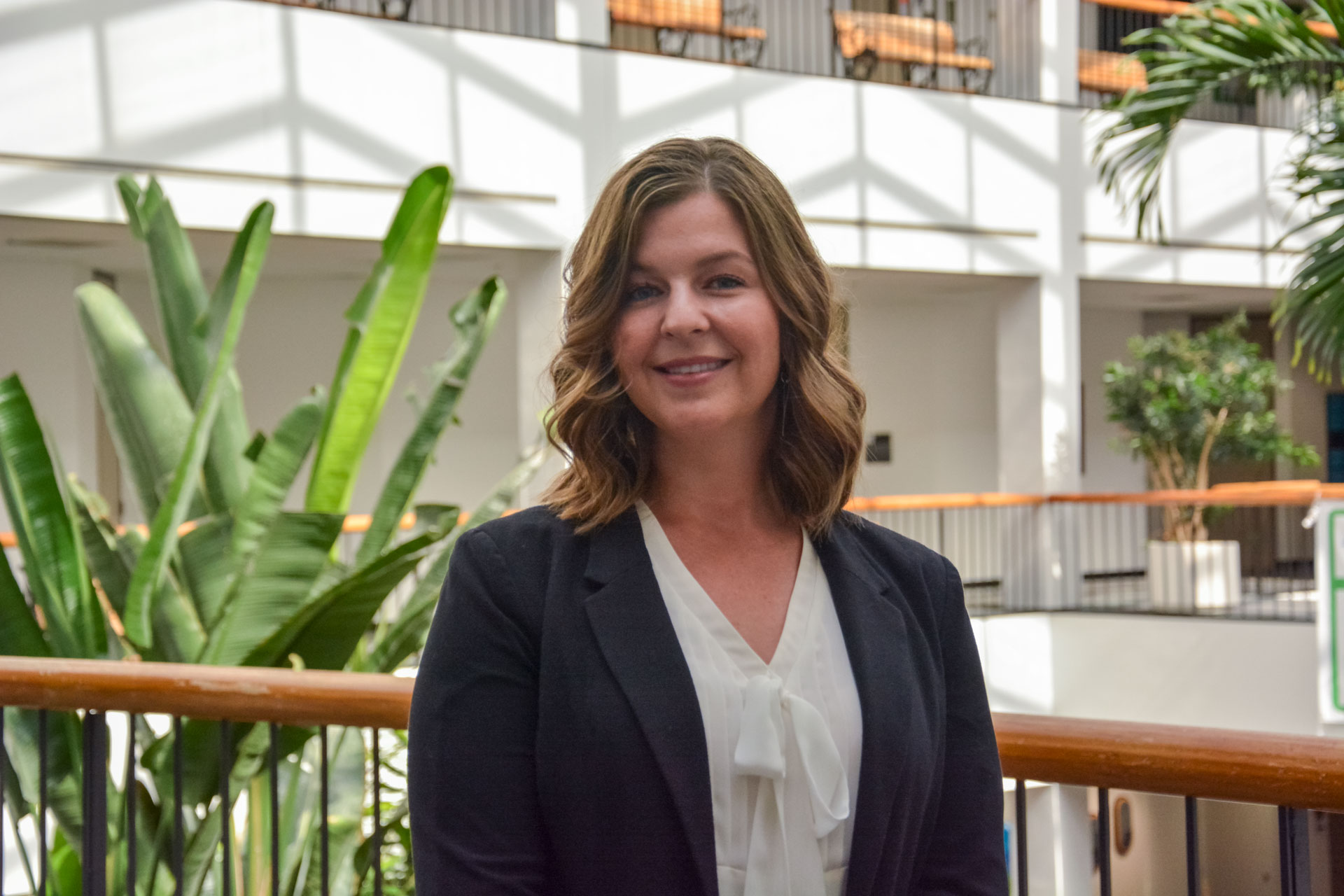UHCL prof awarded grant to improve doctor-patient communication in veterans hospitals
July 18, 2018 | UHCL Staff

In an ongoing research effort to develop strategies to improve patient-centered care
in veterans hospitals, University of Houston-Clear Lake’s Associate Professor of Sociology
Jennifer Arney has teamed with researchers at the Michael E. DeBakey Veterans Affairs
Medical Center in Houston.
Arney is co-investigator of a research team that has been awarded a research grant
by the Department of Veterans Affairs. The study will take place at IQuESt (Center
for Innovations in Quality, Effectiveness, and Safety), a research center affiliated
with the Michael E. DeBakey Veterans Affairs Medical Center and Baylor College of
Medicine.
“As a medical sociologist, I became interested in researching veterans’ health during
my post-doctoral research and I found like-minded individuals interested in doctor-patient
communication and medical decision-making,” Arney said.
She found an opportunity at IQuESt, where people were studying doctor-patient communication
as it applied to veterans. “It was in line with the research program I developed during
my doctoral program. This was a great fit. I could do applied research in a real setting
with a population in need,” she said.
In the course of her research, Arney said she acquired a wealth of information about
a variety of health conditions. “In this grant, I’m studying veterans with advanced
liver disease, which affects veterans disproportionately from the rest of the population,”
she said. “It’s associated with general declining health, fatigue, frequent hospitalizations
and poor quality of life.”
The grant she’s working on has one quantitative objective and two qualitative objectives
and is “definitely a team effort,” she said. “I’m co-investigator with VA physicians
Fasiha Kanwal and Aanand Naik, who are primary investigators.”
Quantitatively, the grant seeks to complete an exhaustive chart review of all veterans’
health records to develop a risk-prediction model to make it possible to stratify
liver disease patients in groups based upon a low, moderate or high risk of developing
complications or being hospitalized.
“This chart review will be done with health records in veterans hospitals across the
nation, so it’s a lot of charts,” Arney said. “This review lays the foundation for
two qualitative objectives, which are what I’ll be working on. And I get to do my
favorite thing, which is talk to people.”
First, she said she would be interviewing patients suffering from advanced liver disease
to learn about their experiences with their illness. “I’ll be gathering data about
what information they want from their doctor and how they want it delivered during
medical encounters,” she said. “The idea is to find ways to help the patient and
doctor work together to formulate a treatment plan that coincides with the patient’s
own goals and preferences. Treatment has to be a collaborative process, because we’ve
established that the ‘take this pill and call me in the morning’ model doesn’t work.”
She added that more interaction between the patient and the doctor, with more substantive
discussions about how to construct a treatment plan that best fits into the patient’s
life will result in better outcomes.
She’ll also be interviewing the doctors and other clinicians who care for patients
with liver disease. “I’ll be asking about their experiences communicating risks of
the disease to patients, making a treatment plan with patients, and how they see their
role in treatment planning,” Arney said.
The data she collects from patients, caregivers and doctors will be complied to create
a “journey map” used in clinical encounters so that doctors and patients can better
align their efforts to create the best possible treatment plan. The team will also
develop educational handouts for patients and caregivers about liver disease, and
materials to help doctors engage patients in conversations about their health goals
and preferences.
Arney said she would begin interviewing patients this fall. “The grant is for three
years, but I hope to finish my part of it two years from now,” she said. “I hope that
after it’s done, we’ll have found ways to improve patient-centered care in veterans
hospitals.”
For more information about UH-Clear Lake’s Sociology program, visit www.uhcl.edu/human-sciences-humanities/departments/social-cultural-sciences/sociology.
About the Author:
Recent entries by
October 18 2022
Better technology transforms campus safety: Police Chief demonstrates SafeZone to students
October 14 2022
Student's skill with drones takes chicken turtle research to new heights
October 11 2022
Planting event to help UHCL restore native plants to campus, support environmental sustainability







